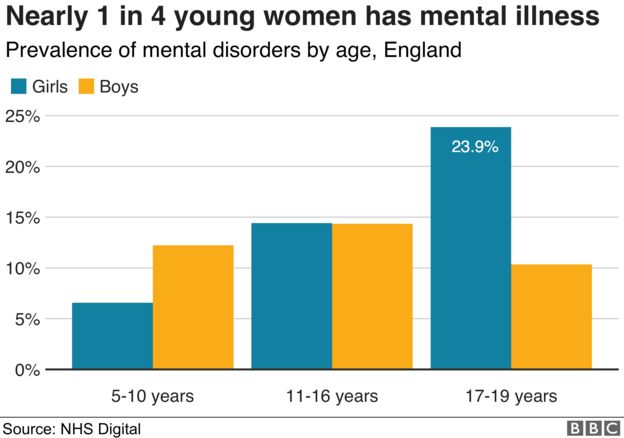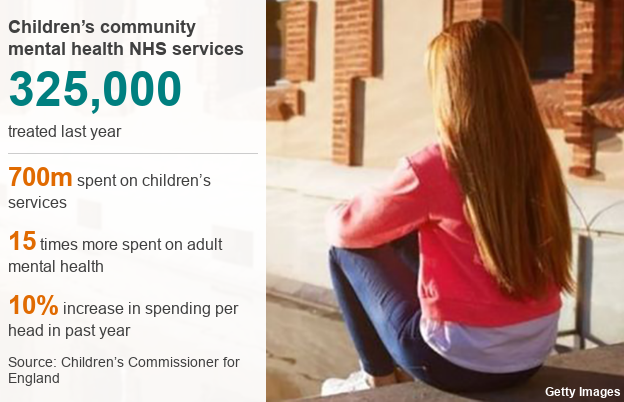safety-lane.com 07105
NEWARK
http://bit.ly/1DCt06V
Mental health: One in four young women struggling
Nearly one in four young women has a mental illness, with emotional problems such as depression and anxiety the most common, figures for England show.
The official NHS report found young women aged 17 to 19 were twice as likely as young men to have problems, with 23.9% reporting a disorder.
Problems are less common in younger age groups, but are rising, albeit slowly.
In children aged five to 15, one in nine had a disorder, up from one in 10 when the review was done 13 years ago.
The findings are based on a survey of more than 9,000 young people.
The results have been gathered by statistics body NHS Digital and assessed by experts to try to ensure only diagnosable conditions are included.
Dr Bernadka Dubicka, of the Royal College of Psychiatrists, said the numbers of young women with problems was “alarming”.
She said body image pressures, exam stress and the negative effects of social media may all affect girls disproportionately, while they were also more likely to be victims of abuse and sexual assault.
“We can only speculate. We still do not fully understand this – all we know is that we see more girls in our clinics.
“We have to make sure services are available for them.”

Is social media to blame for problems young people face?
It may be a factor, although it is hard to tell.
The NHS Digital review found children aged 11 to 19 with a mental health problem were more likely to use social media.
Nearly a third of them spent over four hours a day on social media.
Those who did not have a mental health problem were two to three times less likely to spend that amount of time on it.
The young people with mental health problems were more likely to say their mood was affected by the number of “likes” they got and they were also more likely to compare themselves to others on social media.
The report cited cyber-bullying as an issue too.
But while this does suggest social media can have a negative impact, it does not prove it is to blame.
People with mental health problems may be just more likely to find themselves on it, rather than it causing their problems in the first place. Indeed, they could even be using social media for support.
Adolescence is key
The majority of problems reported, particularly in the older age groups, are linked to emotional disorders.
These are on the rise, whereas the other disorders they looked at – behavioural and hyperactivity – have remained relatively stable over time.
University College London psychiatrist Dr Michael Bloomfield said: “Adolescence is a critical period for a person’s development, particularly as our brains go through important changes during our teenage years.
“Since prevention is better than cure, it is really important for all of us in society to understand together why this is and start reducing the rates of mental disorders in young people.”

via Blogger http://bit.ly/2DUHBkH

Recent Comments